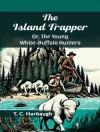In ‘The Call of the Wild, ‘ ‘White Fang, ‘ and ‘The Son of the Wolf, ‘ Jack London vividly captures the primal instincts of survival against the backdrop of the untamed wilderness. Through gripping narratives, London employs a naturalistic literary style, weaving elements of adventure and anthropomorphism to explore themes of instinct, evolution, and the struggle for power in both animal and human contexts. Each story serves as a profound commentary on the intersection of civilization and the wild, reflecting the environmental and social challenges of the early 20th century and inviting readers to contemplate their intrinsic ties to nature. Jack London, a figure deeply influenced by his experiences with the Klondike Gold Rush and his own thirst for adventure, imbued his works with a raw authenticity stemming from personal struggle and philosophical inquiry. His diverse background, encompassing work as a sailor, vagabond, and social activist, informs the existential themes present in these tales, revealing a deep-seated understanding of both the human condition and the natural world that surrounds it. For readers who seek an exploration of humanity’s enduring connection with the wild, these stories are indispensable. They challenge perceptions of civilization while igniting a passion for adventure and a deeper appreciation of life’s primal truths, making them essential reads for lovers of classic literature and nature enthusiasts alike.
Giới thiệu về tác giả
Jack London (1876–1916), an American novelist and short story writer, holds a prominent place in 20th-century literature with his distinctive blend of adventure, naturalism, and a stark depiction of the human condition. Born in San Francisco as John Griffith Chaney, London led a life as rugged and adventurous as the characters in his books. His experiences as a sailor, prospector in the Klondike Gold Rush, and vagabond deeply influenced his writing. He emerged as a passionate advocate of unionization, workers’ rights, and socialism, themes that appear throughout his work. London’s literary acclaim began with ‘The Call of the Wild’ (1903), a novel that recounts the story of Buck, a domestic dog thrust into the brutal realities of the Alaskan wilderness. This book, alongside ‘White Fang’ (1906), which explores the world from the viewpoint of a wild wolf-dog, cements London’s reputation for exploring complex themes of survival and the dichotomy between civilization and the natural world. ‘The Son of the Wolf’ (1900), his first collection of stories, drew upon his experiences during the Klondike Gold Rush and further established the raw and vivid prose characteristic of London’s stories. London’s narratives often focus on the toilsome lives of marginalized characters, set against unforgiving environments, which mirrored his own belief in the deterministic forces of nature over man. Throughout his career, London wrote with an unflinching realism that was both criticized and lauded, positioning him as a significant figure in American literary naturalism.












